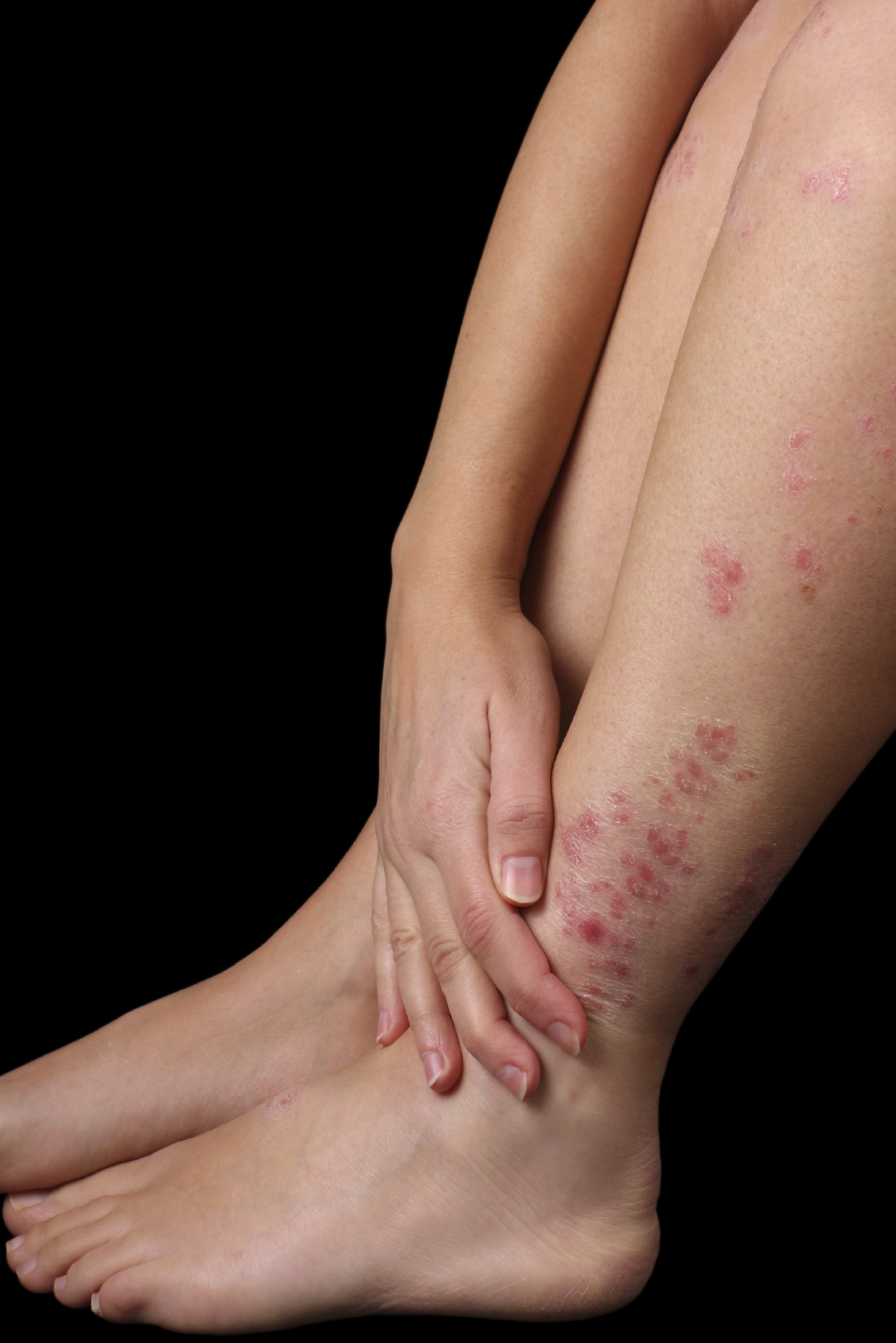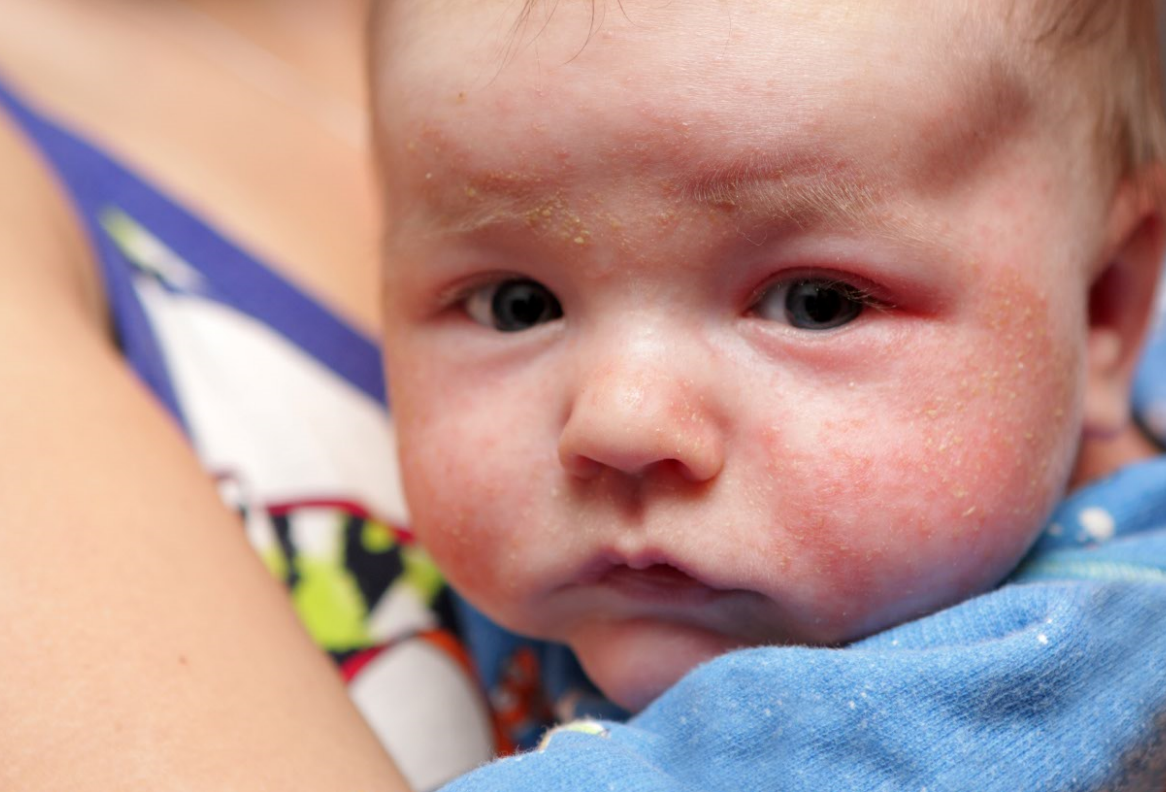Dry skin is  an uncomfortable skin condition, affecting people of all ages and appearing anywhere on the body.
an uncomfortable skin condition, affecting people of all ages and appearing anywhere on the body.
It commonly causes itching and if severe, can affect sleep and other day to day activities.
Even though scratching can bring a sense of relief, it can also aggravate the skin, especially if it’s intense.
Repeated scratching can damage the surface of the skin, allowing bacteria to enter and possibly lead to infection.
The skin also becomes red (inflamed), which could lead to eczema.
Eczema
Eczema (also known as dermatitis) is a group term used to describe skin that has become dry, red and irritated. Eczema is the most common non contagious skin condition, affecting all ages with symptoms differing from person to person. In the UK, one in five children and one in twelve adults has eczema (www.eczema.org). Even though there is no cure for eczema, it may improve with age but it still needs to be managed. There are several types of eczema however, in pharmacy, the majority of queries are likely to be related to atopic eczema. For information on other types, please visit www.eczema.org. Be aware of complications for example, if there are signs of bacterial, viral or fungal infections, you will need to refer these to the pharmacist.
We will be covering atopic eczema in this module.
Atopic Eczema
 Atopic eczema is the most widely recognised forms of eczema. It can start at any age but mainly affects children. It often runs in the family and is linked to other allergic conditions such as asthma and hay fever.
Atopic eczema is the most widely recognised forms of eczema. It can start at any age but mainly affects children. It often runs in the family and is linked to other allergic conditions such as asthma and hay fever.
The main symptom is itching, which becomes unbearable, causing the person to want to scratch. This can then cause problems with sleeping, irritability and tiredness. Sometimes people will experience a period of ‘flare ups’ causing the skin to become red and sore.
The exact cause of atopic eczema is unknown but is thought to be linked to an overactive response by the body’s immune system to an irritant. While there are a lot of external factors causing eczema, for most people it will be down to genetics and if there is a family history of eczema, it’s likely to be passed down.
